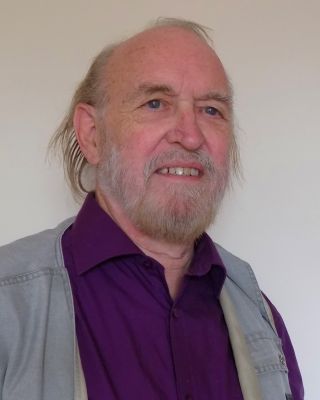Category:Robert Crompton
I began my journey in a land where there were paraffin lamps and steam trains and a lovely big forest. There I discovered the books of Mary Webb and Winifred Holtby and Robert Neill which were much more exciting than the books and tracts of the mind-numbing religion I'd been brought up in. I decided that one day I would write that sort of book myself.
Before I could be a real writer, however, I had to become a scientist or an engineer or a teacher or something like that (my Dad said). My scientific career, however, reached no further than the stage of pretty crap laboratory technician, but the bonus I picked up from those years was a love for the books of writers like Stan Barstow and Colin Wilson.
Then I went, as a late entrant, to Lancaster University to read philosophy and linguistics. I loved every minute but it only lasted three years. I was thrown back into a world where steam trains and paraffin lamps had become extinct – but the forest was still there. I got a job as a local government officer, read Kurt Vonnegut and Richard Adams. and wrote a brilliant short novel which, unaccountably, nobody else seemed to rave about very much. I've still got it somewhere.
Then I had a really crazy idea. I could be a parson. Not in the we'll-do-all-your-thinking-for-you sort of religion of my childhood and youth, but in a church which allowed a bit of breadth. Well, quite a lot, actually. The Methodist church. They seemed to think I'd be okay so they sent me off to Cambridge to read biblical studies for three wonderful years before dropping me into a church in County Durham. I didn't read very many novels up there but I did register as a part-time post-graduate researcher and began the work which eventually led to my break-through into the world of the published author with Counting the Days to Armageddon, a history of the religion I'd been brought up in.
Counting was published as an academic monograph with a corresponding price tag, but it earned me a bit of respectability and a foot in the door of the academic establishment which side-tracked me for a while from my career as a novelist. After our stint in the north east we moved a little closer to the forest, but it wasn't to last and we bounced around South Wales for nearly twenty years.
Then a funny thing happened. I noticed that whenever I revisited that land of paraffin lamps and steam trains and the forest, there were always stories hovering in the air. And characters who needed someone to tell their stories. So I set to work. First it was Peter Bunderlin's story set against the back-drop of Winter Hill. (He loves the trains but don't let him anywhere near a paraffin lamp – he's such a clumsy great oaf, he'll burn the place down.) And then the story of Susan Ridley who, in Leaving Gilead, was helped on her way to freedom by a character based upon a wonderful old woman of the forest who was loved by kids of my mother's generation.
We're now in Herefordshire and I'm still kicking through the leaves of the forest at every opportunity as I tune in to the story which Judy Whitaker is trying to piece together, of Solomon, her distant grandfather and one of the shadowy workers who drained the ancient peat-bogs which are now being restored to the forest.
The following 3 pages are in this category, out of 3 total.

